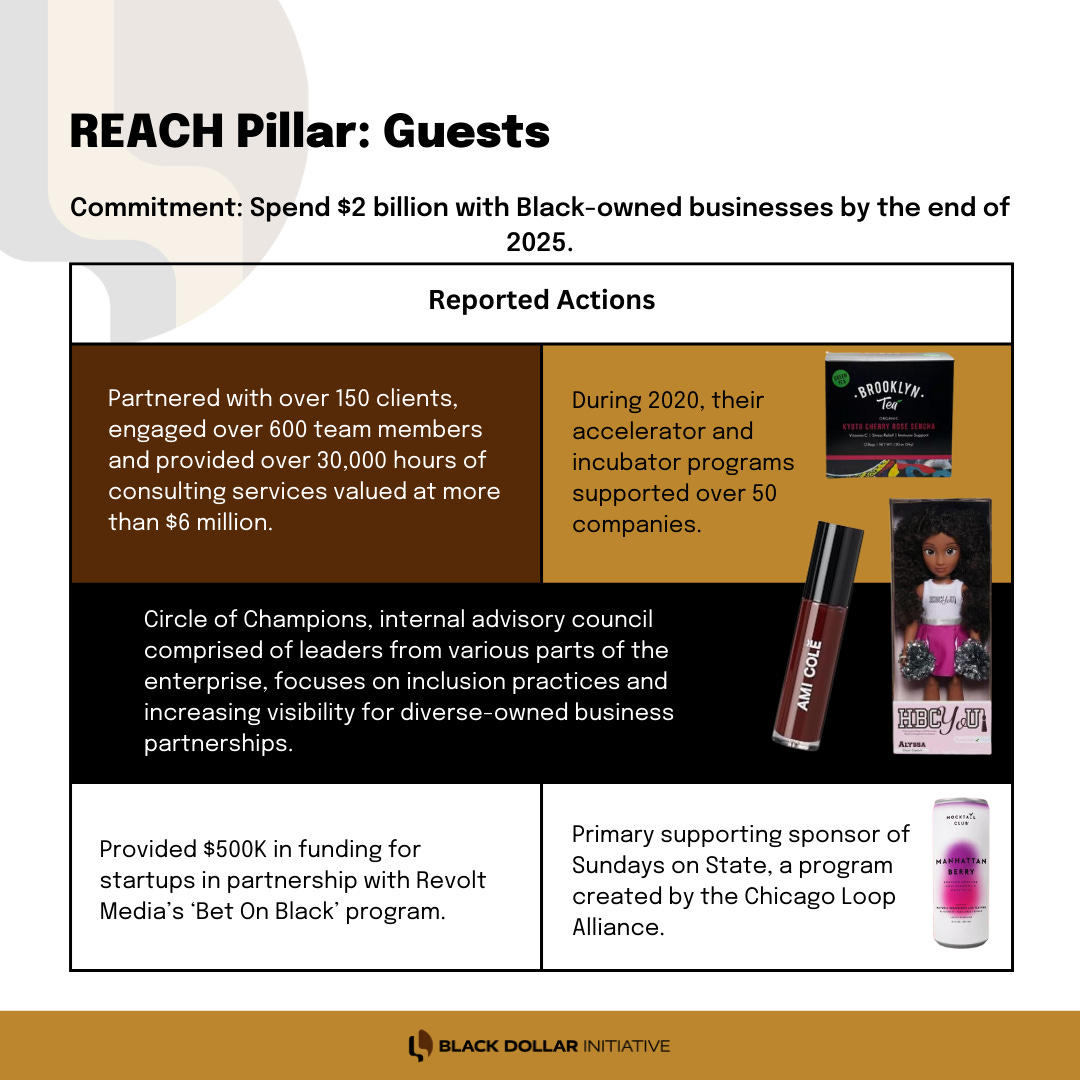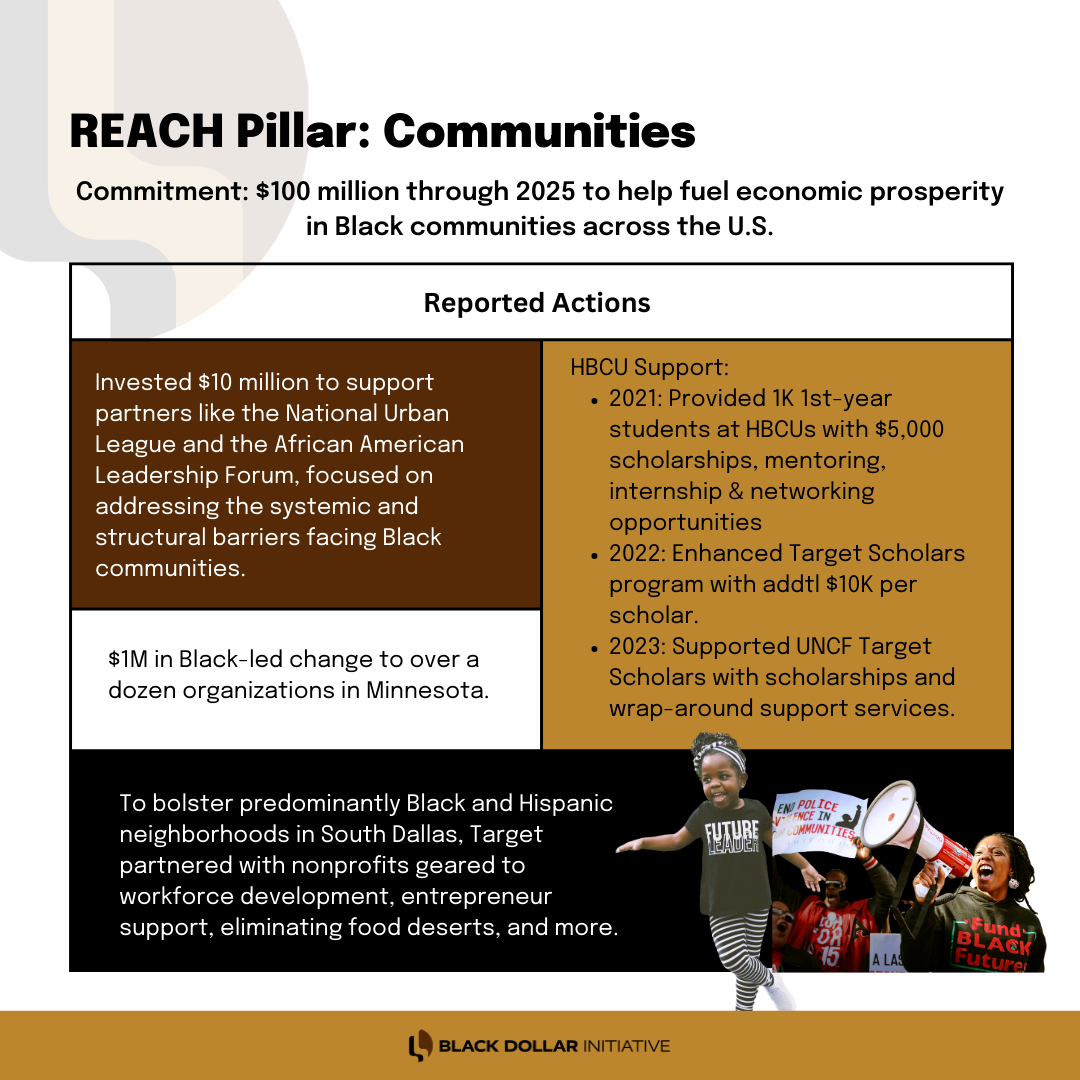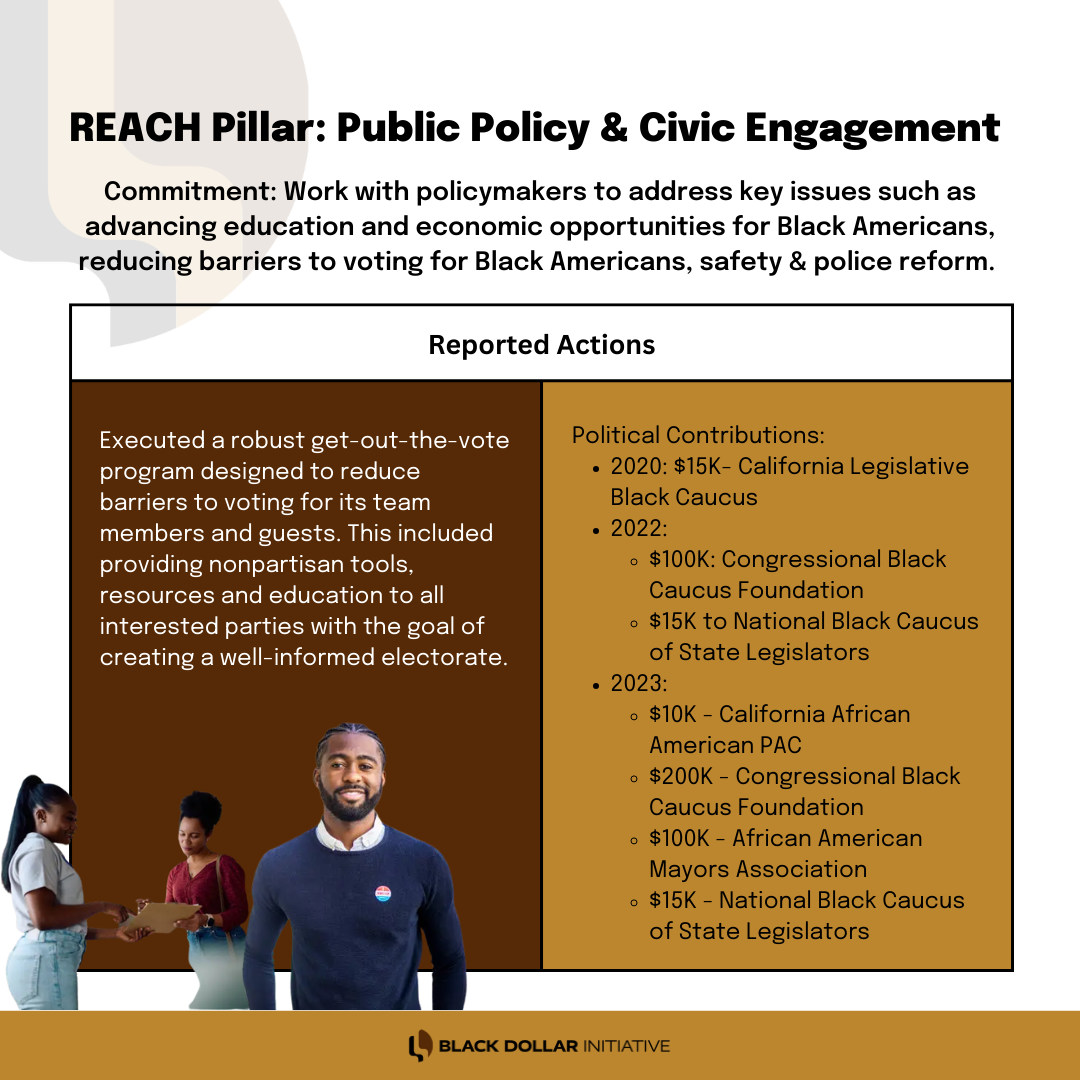From Black To Boycott: Did Target Deliver on Its 5-Year Promises Before Tapping Out?
A look at Target's DEI Commitments from 2020-2025
“Do not introduce me to a vibe you cannot maintain.”
— African Proverb
With all of the companies pulling back from DEI, there was something specific about Target that hit the Black community a little harder than the others. There was something we felt connected to — it was cooler, they seemed more progressive, we had a special name for them (Targét pronounced Tar-jay), they even put Black-owned products on shelves in a loud(er) way. But at the end of the day, they were just like the others.
How did we get here? There’s more to it than just caving to political pressure. When we pop the hood, we can get a better understanding of what’s really behind a company’s stance on Diversity, Equity, and Inclusion — and it’s bigger than semantics.
From George Floyd’s murder in 2020 until now, Target has had a 5-year shift in their DEI strategy, ultimately evolving into “Belonging.” This mini report provides a look at their 2020-2024 Corporate Social Responsibility (CSR) reporting to see what was achieved and may provide insights into how we got to the 2025 boycott.
“DEI is bad for business.” Since 2020, Target’s revenue is up +14% and up 37% if you go back to 2019. This is the same timeframe that they took a major stance on racial justice issues.
In fact, racial justice was all the rage all up, in, and through their yearly CSR reports, where terms related to DEI and racial equity grew significantly from 2020-2022. Target was ALL IN — until they weren’t.
Black was a buzzword from 2021-2022, mentioned repeatedly in their reports, mostly repeating the same things over and over in regards to their new Racial Equity Action and Change (REACH) commitments.
Q. What is REACH?
A. REACH is a committee that was created to establish and champion Target’s racial equity strategy. Now, what was or wasn’t done is NOT a reflection of this committee, but a reminder that it takes MORE THAN six people to change a systemic issue like racism.
REACH established four pillars and each pillar had a big commitment attached to it. In 2022, Target reported that they were “on-track to meet commitments from our Racial Equity Action and Change (REACH) committee, including investing $2 billion in Black-owned businesses by 2025.”
Pillar 1: Team
Commitment: Increase representation of Black team members across the Target team by 20% from 2021-2023.
This is where it gets interesting. Take a look at how Target’s workforce did or did not change from 2019-2023 and who was most impacted.
We would like to note that according to the US Census, Black people make up 13.7% of the US population, so Target is on par or overindexing for total workforce, managers, and non-managers.
Pillar 2: Guests
Commitment: Spend $2 billion with Black-owned businesses by the end of 2025.
Now remember, corporations like MONEY, so investing in Black-owned businesses is very much a “guest” strategy, because the more Black shoppers feel connected and included, the more money the corporation stands to make. Costco even mentioned this in their reason for keeping DEI.
Pillar 3: Communities
Commitment: $100 million through 2025 to help fuel economic prosperity in Black communities across the U.S.
Pillar 4: Public Policy & Civic Engagement
Commitment: Work with policymakers to address key issues such as advancing education and economic opportunities for Black Americans, reducing barriers to voting for Black Americans, safety & police reform.
So, when you put all that together, what do you get? Did Target deliver on their commitments before shifting to “Belonging?”
And the verdict: Hold Target to 2025. We’ll give them civic engagement, but the $2.1B is inconclusive, and their representation goal was a miss.
The Takeaways:
We need to interrogate what is behind “DEI.” Standing behind companies simply because they are keeping DEI is NOT enough.
Black is NOT POC. Black is NOT BIPOC. We all have different needs — corporations need to be intentional and stop conflating strategies and data.
If Target cares to regain Black consumer trust, demand that they answer the questions above to provide more clarity around what they achieved and where they are going. Target contact info here.
Be informed.
The Black Dollar Initiative is the 501(c)(3) research and data hub that powers the Black Dollar Index. Your donation will go towards helping us research, analyze, and report over 120 corporations across 20+ data points. Donations are tax-deductible (EIN: 85-2383485).
Sources:
Target’s 2019 CSR Report
Target’s 2020 CSR Report
Target’s 2021 CSR Report
Target’s 2023 Sustainability and Governance Report
Target’s 2024 Sustainability and Governance Report & Appendix



















This is so helpful! On the surface it just looks like they used us for clout. I’d be interested to see more details about their investment but I doubt they will share it.
Thank you. So my takeaway is Target ran a Diversity, Equity, and Inclusion ad campaign they never intended to deliver on, only profit. It would have worked too, if the most famous con-artist didn’t allegedly pressure them to drop it.
The saddest part of this report, however, is coming to the realization that the world continues to commodify Black lives and the Black community can’t or hasn’t figured out how to receive dividends.